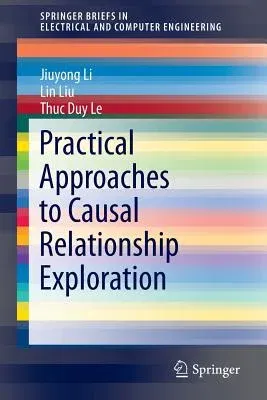Jiuyong Li
(Author)Practical Approaches to Causal Relationship Exploration (2015)Paperback - 2015, 25 March 2015

Qty
1
Turbo
Ships in 2 - 3 days
In Stock
Free Delivery
Cash on Delivery
15 Days
Free Returns
Secure Checkout
Part of Series
Springerbriefs in Electrical and Computer Engineering
Print Length
80 pages
Language
English
Publisher
Springer
Date Published
25 Mar 2015
ISBN-10
3319144324
ISBN-13
9783319144320
Description
Product Details
Authors:
Book Edition:
2015
Book Format:
Paperback
Country of Origin:
NL
Date Published:
25 March 2015
Dimensions:
23.39 x
15.6 x
0.48 cm
ISBN-10:
3319144324
ISBN-13:
9783319144320
Language:
English
Location:
Cham
Pages:
80
Publisher:
Weight:
140.61 gm

